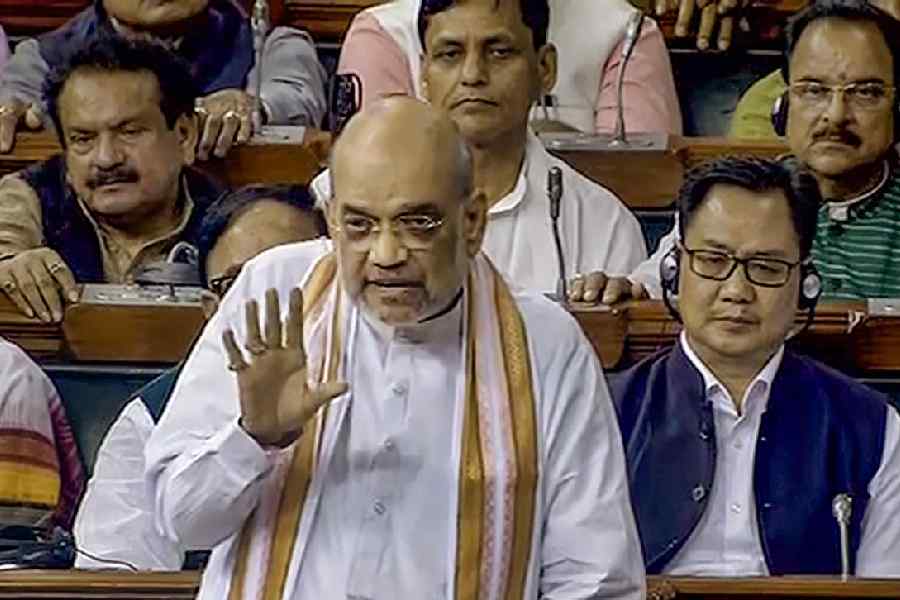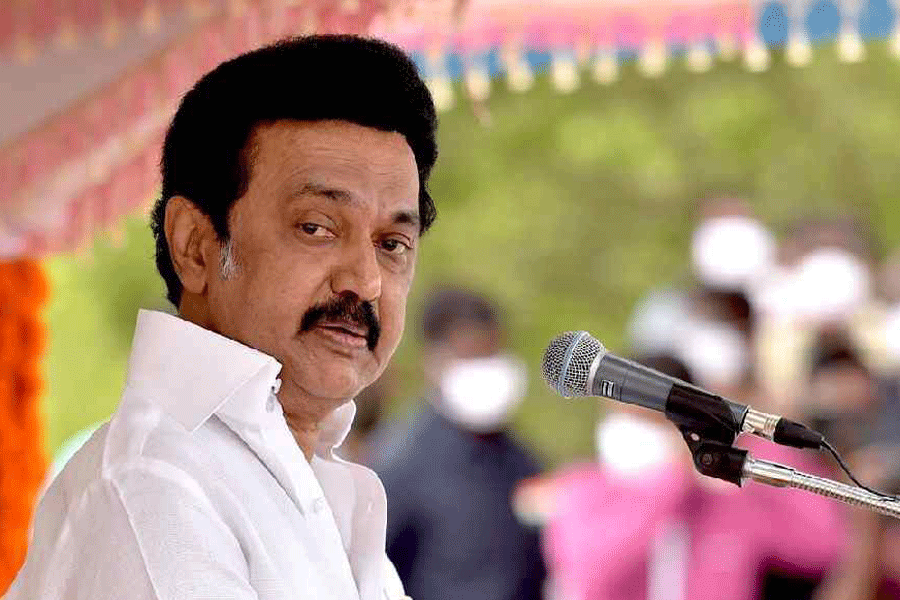The purpose of the three new bills that seek to replace the Indian Penal Code (1860), Criminal Procedure Code (1898) and Indian Evidence Act is not to punish but to give justice, Union Home Minister Amit Shah said on Friday.
He said the Bharatiya Nyaya Sanhita Bill, 2023; Bhartiya Nagarik Suraksha Sanhita Bill, 2023 and Bharatiya Sakshya Bill, 2023 will protect all the rights of citizens given by the Constitution.
"The three outgoing laws were made to strengthen and protect the British rule and their purpose was to punish, not to give justice. The three new laws made with Indian thought process will bring a huge change in our criminal justice system. The Modi government has brought these laws taking a very principled decision to bring citizens at the centre instead of governance," he said.
Shah said the three old laws had signs of slavery as they were passed by the British parliament. With the new laws, the signs of slavery will be removed from a total of 475 places, he said.
He said a total of 313 changes have been which will bring a widespread change in India's criminal justice system, and now people will be able to get justice within a maximum of three years.
The proposed laws expand the definition of documents to include electronic or digital records, e-mails, server logs, computers, smart phones, laptops, SMS, websites, locational evidence, mails, messages on devices.
They have provisions to digitise the entire process -- from FIR and case diary to charge sheet and judgement.
Videography is proposed to be made compulsory at the time of search and seizure and without such recording by the police no charge sheet will be valid, according to the bills which also make compulsory the visit by a forensic team on the crime scene in cases having provision for punishment of seven years or more.
Provision of e-FIR is being added for the first time, and every district and police station will designate a police officer who will officially inform the family of the arrested person about his arrest online and in person, the bills propose.
In cases of sexual violence, video recording of the statement of victim has also been made compulsory.
The bills propose that no government will be able to withdraw a case that entails imprisonment of seven years or more without listening to the victim.
The scope of summary trial has been increased in petty cases and now crimes punishable up to three years will be included in summary trial. This provision is expected to end over 40 per cent of cases in sessions courts.
A time limit of 90 days is fixed for filing charge sheet but the court can give 90 more days depending on the situation and the investigation will have to be completed within 180 days and trial started, the legislations propose.
Courts will now be bound to give notice of framing of charge to the accused person within 60 days and the judge will have to give verdict within 30 days after the completion of arguments, the bills propose, saying it will not keep the decision pending for years.
The order will have to be made available online within seven days.
The government has to decide on permission within 120 days for trial against civil servants or police officers else it will be treated as deemed permission and trial will be started, the bills propose.
A provision has been brought for the attachment of property of declared offenders, a new provision of harsh punishment against inter-state gangs and organised crimes has also been proposed.
Sex on the pretext of marriage, employment, promotion and false identity has been made a crime for the first time and 20 years of imprisonment or life imprisonment has been proposed in all cases of gang-rape.
Provision of death penalty has been made in case of crime with girls below 18 years of age, while all three provisions -- seven years in jail, life imprisonment and capital punishment -- have been made for mob lynching.
Earlier, there was no special provision for punishing cases of snatching of mobile phone or chain from women, but now a special provision has been made to address these situations -- imprisonment for 10 years or life imprisonment in case of permanent disability or being brain dead during the crime.
There were many cases of using pardon for political gains, now the death penalty can only be changed to life imprisonment, life imprisonment to a minimum of seven years and seven years to a minimum of three years.
The Modi government is going to repeal sedition law completely because, officials said, India is a democracy and everyone has the right to speak.
Earlier, there was no definition of terrorism, now crimes like armed insurgency, subversive activities, separatism, challenging the unity, sovereignty and integrity of India have been defined in this law for the first time.
A decision on trial in absentia has been taken, a person declared fugitive by a Sessions Court judge will be tried and sentenced in his absence, no matter where in the world he may be hiding, if the fugitive has to appeal against punishment, he will have to follow Indian law, the bills propose.
The home minister said one of the five 'PRAN' taken by Prime Minister Narendra Modi before the country on August 15 was to end all signs of slavery and the three bills are going to fulfil this vow.
He said Modi had said in 2019 that all the laws made during the time of the British across all the department should be made in accordance with today's time and in the interest of the Indian society after adequate discussion and consideration.
As many as 18 States, six Union Territories, the Supreme Court, 16 High Courts, five judicial academies, 22 law universities, 142 MPs, around 270 MLAs and public have given their suggestions on these new laws.
The home minister said intense discussions were held over four years on these laws and he himself was present in 158 consultation meetings.
The Bhartiya Nagarik Suraksha Sanhita Bill, which will replace CrPC, now has 533 sections, 160 sections of old law have been changed, nine new sections have been added and nine repealed.
The Bharatiya Nyaya Sanhita Bill 2023, which will replace the Indian Penal Code, will have 356 sections instead of the earlier 511 sections, 175 sections have been changed, eight new sections added and 22 repealed.
The Bharatiya Sakshya Bill, which will replace the Evidence Act, will now have 170 sections instead of the earlier 167, 23 sections have been changed, one new section has been added and five have been repealed.
"After three years, every year 33,000 forensic science experts and scientists will be available in the country, the target has been set in the law to take the conviction ratio above 90 per cent," Shah said.
Except for the headline, this story has not been edited by The Telegraph Online staff and has been published from a syndicated feed.











